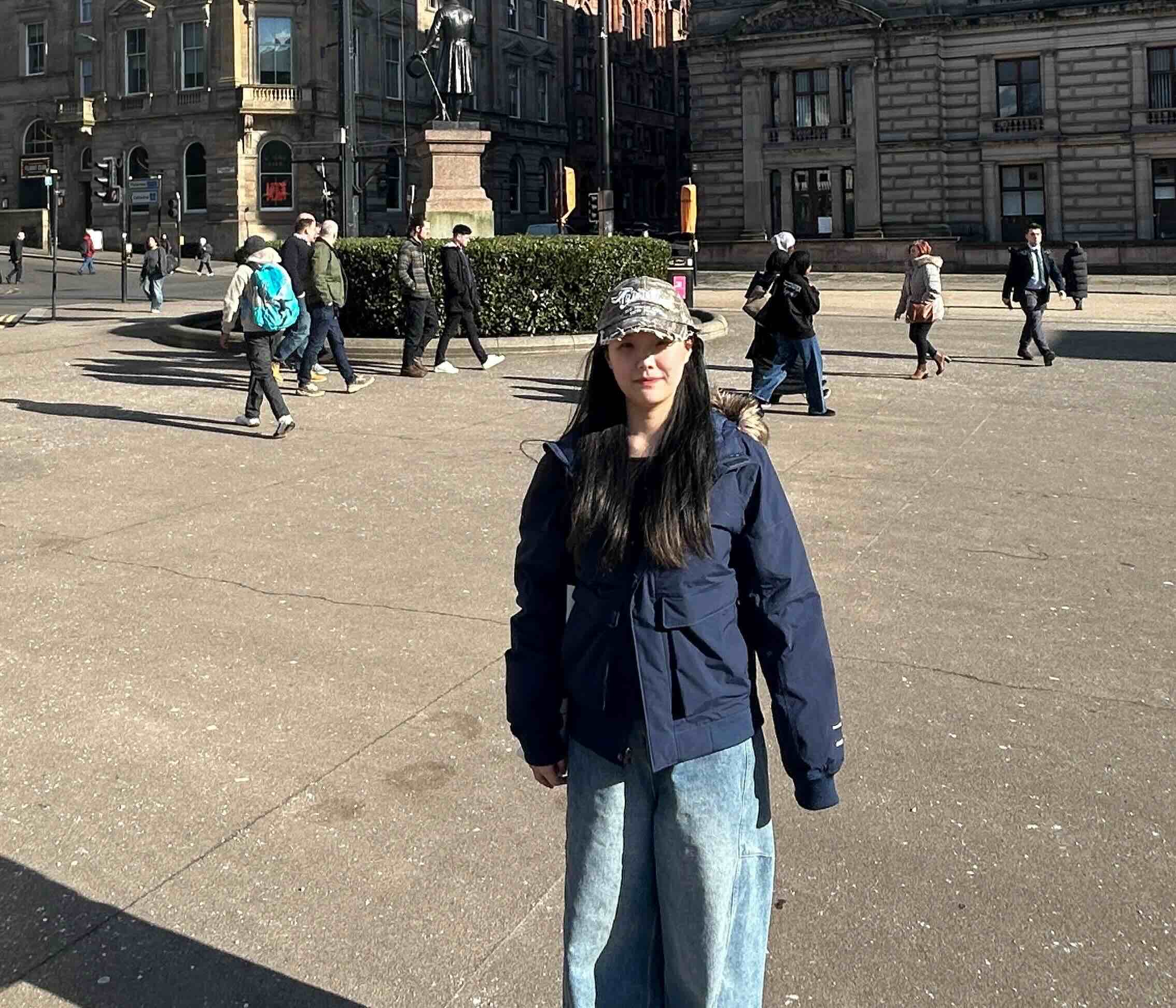Tell us a little bit about your background…
I graduated from Xiamen University Tan Kah Kee College with a Bachelor’s degree in Chinese Language and Literature. As a student of humanities and social sciences, I developed a strong interest in cultural studies and critical thinking. I participated in a 4+1 program that allowed me to pursue my Master’s degree at Strathclyde. During my undergraduate studies, I received a high scholarship for my academic excellence, which inspired me to further explore the field of education. My background in literature and humanities has shaped my perspective on education, particularly in understanding cultural contexts and inclusive teaching practices.
What inspired you to study MSc Education Studies at Strathclyde?
I chose the MSc Education Studies program at Strathclyde because of its strong emphasis on social justice and its interdisciplinary approach, which resonates with my background in humanities and social sciences. I was particularly drawn to the opportunity to explore educational practices within diverse cultural contexts. Additionally, the university’s inclusive learning environment and the opportunity to engage with international classmates greatly appealed to me.
How do you think this course will help prepare you for your future career?
This course is equipping me with the theoretical knowledge and practical skills needed to address educational challenges in a globalised world. I am learning to critically analyse educational policies and practices, with a focus on promoting inclusive and equitable learning environments. I believe these skills will be valuable in my future career, whether in educational research, curriculum design, or working with international organisations focused on education and social development.
Tell us a little bit about your experience on the course so far.
My experience on the course has been intellectually stimulating and rewarding. The modules encourage critical thinking and provide opportunities to explore educational issues from multiple perspectives. I especially appreciate the interdisciplinary approach that connects education with cultural studies and social justice. Engaging in discussions with classmates from different cultural backgrounds has broadened my understanding of global educational practices. The supportive faculty members have also been instrumental in helping me navigate complex topics in education.
What was the academic support at Strathclyde like?
The academic support at Strathclyde is exceptional. The faculty members are approachable and genuinely invested in students’ success. They provide detailed feedback that enhances critical thinking and academic writing skills. Additionally, the university offers excellent resources, including workshops on research methods and academic writing, which have been extremely beneficial for my coursework and dissertation planning.
What are your aspirations for the future?
I aspire to contribute to the development of inclusive and culturally responsive educational practices. I am particularly interested in educational research and policy-making that promotes equity and social justice in education. In the future, I hope to work with international organisations or educational institutions to design culturally sensitive curricula. I also aim to pursue a PhD in Education, where I can further explore the intersections of education, culture, and social development.
What advice would you give to someone considering studying your course?
I would advise prospective students to approach this course with an open mind and a willingness to engage with diverse perspectives. It challenges conventional views on education and encourages deep reflection on cultural and social issues. Actively participating in discussions and learning from international classmates will greatly enhance the learning experience. Additionally, I recommend making full use of the academic support and resources available at Strathclyde to maximise personal growth and academic success.

